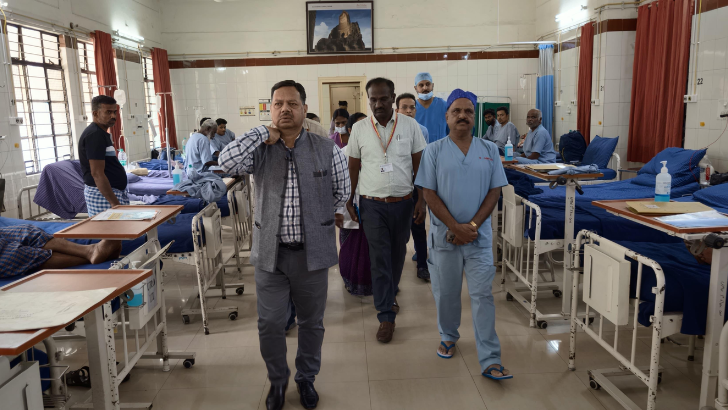Missing data on disabled stalls judicial reform: Study
Lack of reliable data hampers access to justice for persons with disabilities, reveals Pacta’s report, backed by ex-CJI DY Chandrachud.
PTI
.jpg)
BENGALURU, 7 JULY
Critical data on
persons with disabilities in the justice system is missing or inconsistent,
making accountability and reform difficult, said the findings of a
first-of-its-kind research – Access to Justice for Persons with Disabilities in
India: A Data Informed Report.
Launched by Pacta,
a Bengaluru-based law and policy think tank, the report exposes critical data
gaps and systemic exclusion of persons with disabilities across India's police,
prison, judiciary and legal aid systems.
The report also
underscores how India's justice system, despite some progressive mandates,
remains largely inaccessible to persons with disabilities owing to the absence
of reliable data and poor institutional implementation.
In his foreword to
the report, former Chief Justice of India (CJI) DY Chandrachud observed that
data-driven reports are invaluable.
"They go
beyond anecdotal or moral appeal. They enable precise policymaking, track
compliance, and create accountability. They also provide civil society, courts,
and policymakers with the tools to move from aspiration to action," he
wrote.
Chandrachud said
in documenting the barriers and the breakthroughs, the report makes an even
deeper argument: that inclusive systems benefit everyone.
Justice Chandrachud
added that the curb cut effect (disability friendly design like curb cuts for
wheelchairs, for instance, raise the overall accessibility for those with
strollers and luggage using curb cuts) uplifts our collective expectations from
institutions.
"Positive measures such as accessible filing
systems, disability sensitisation, and representation within institutions do
not just help persons with disabilities; they strengthen the justice system as
a whole, making it more humane, participatory, and responsive," he added.
Leave a Reply
Your email address will not be published. Required fields are marked *










.jpg)




.png)
.jpg)


